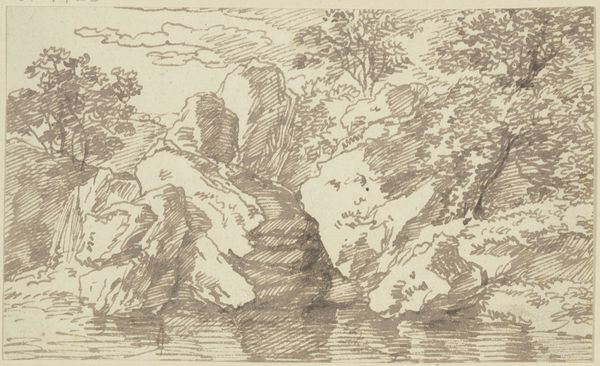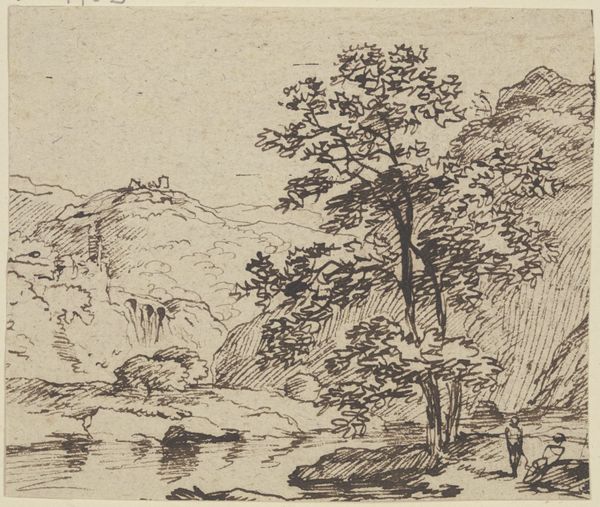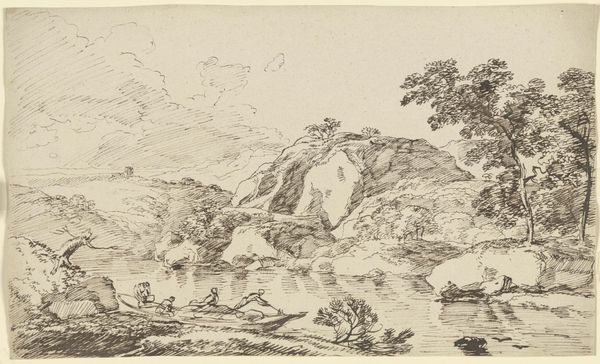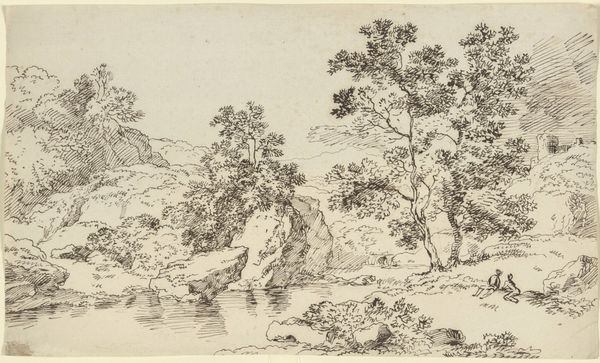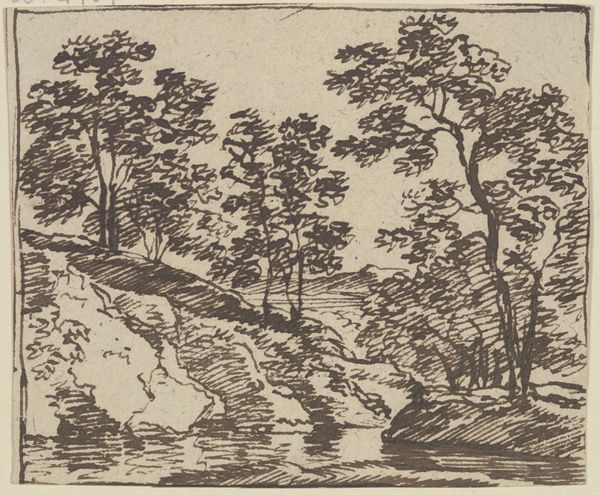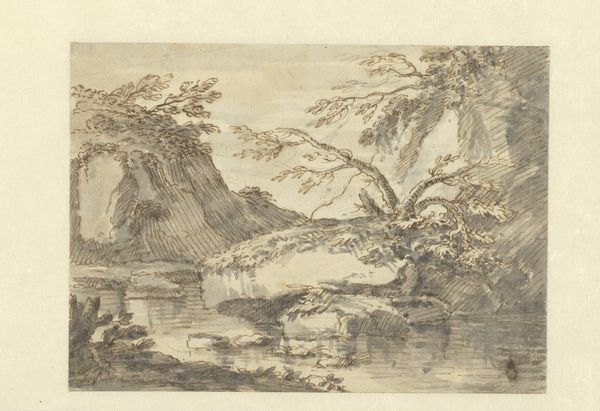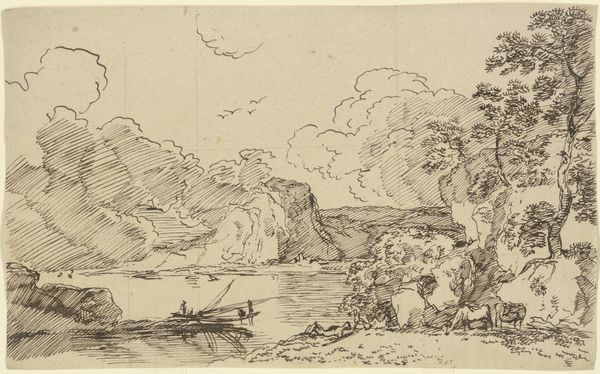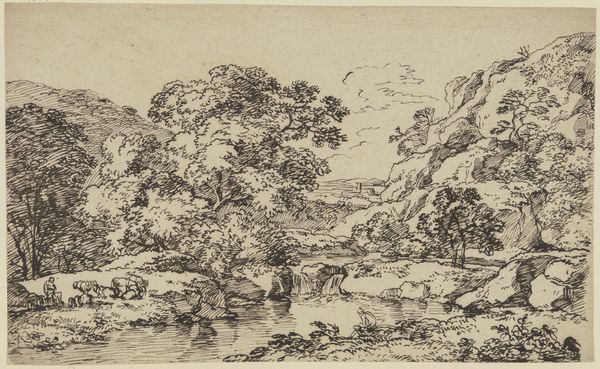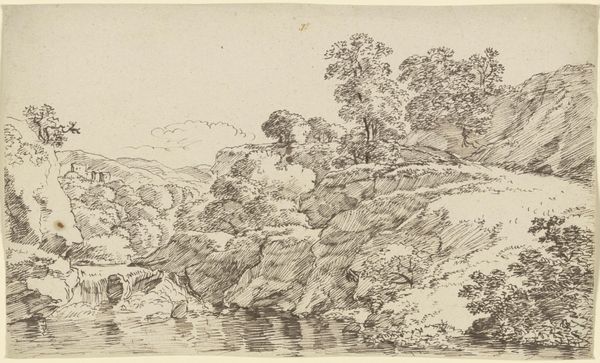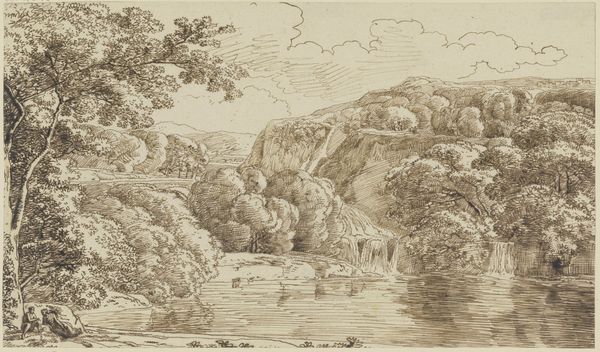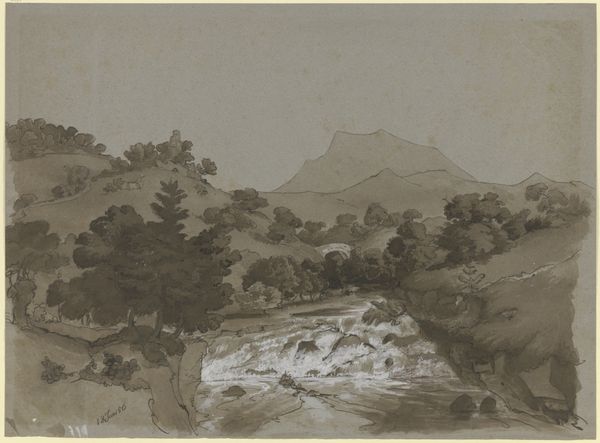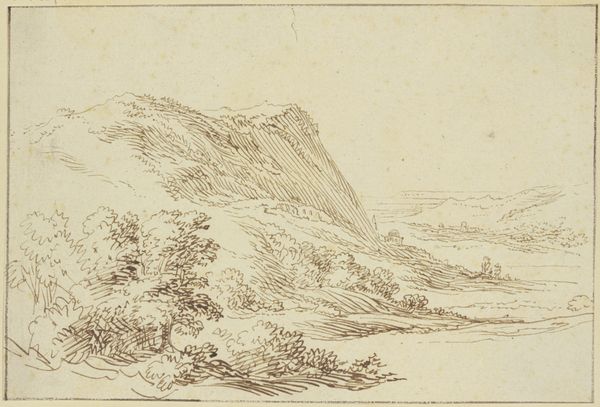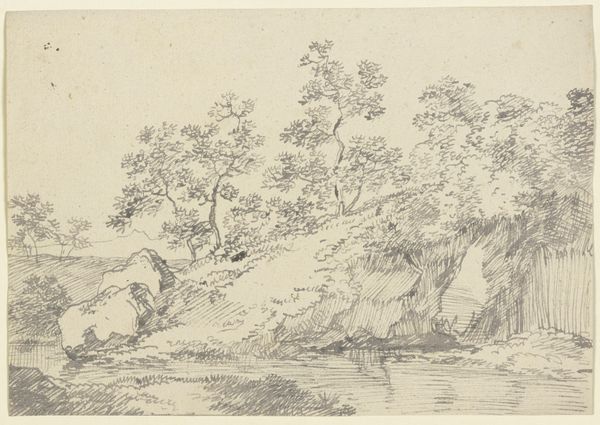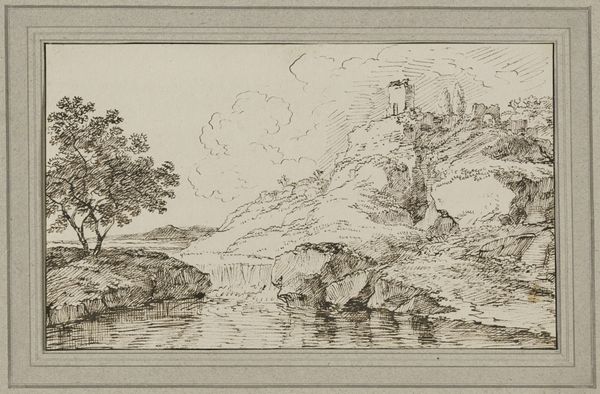
drawing, ink, pencil
#
drawing
#
pen sketch
#
landscape
#
form
#
ink
#
sketch
#
romanticism
#
pencil
#
line
Copyright: Public Domain
Curator: Right now, we're looking at a pen and ink drawing titled "Mountain Landscape with a Body of Water" by Franz Kobell, housed right here at the Städel Museum. It's got that delicate, sketched feel, a bit faded. What strikes you first about it? Editor: The stillness. There’s a muted quietude despite all the jagged lines of the landscape. The almost frantic penstrokes that form the foliage – it gives this contradictory feeling. An anxious peace, perhaps. Curator: That's interesting! The Romantic artists were drawn to nature, weren't they? For its beauty, sure, but also for its sublime and overwhelming power. Do you think we see hints of that here? Editor: I think the power's muted here. See the figure in the boat? They're tiny, insignificant against the mountain, a classical framing for romanticism, but also sort of blending in rather than starkly contrasting. It lacks drama, strangely, a domestic Sublime. Curator: Good point. He almost seems to be communing, at one with it, which suggests another angle of the Romantic impulse: this desire for a spiritual connection with the natural world. It does read like a form more than anything else, this body of water. Like a thought itself. Editor: The mountain certainly reads as the idea of a mountain. Notice how Kobell uses the density of lines almost like shading, defining the forms. And then there’s the water, mirroring – or perhaps distorting – reality. Are the quick, scribbled lines around it supposed to communicate movement, reflection or instability? Curator: It is clever, isn't it, how the artist is able to get so much implied depth with simple linear hatching. The economy of means is part of the charm. Do you feel the symbolical representation impacts it being just "a mountain" that a camera could simply and easily point and shoot at. Editor: Absolutely. He's not just representing a landscape; he's representing a feeling *of* a landscape. And it carries such a heavy symbolic weight even now, hundreds of years later. What can one really extract from our own time in how we view these ideas and reflections? Curator: It's a meditation, then, on the enduring human fascination with landscape, and perhaps a yearning for simpler times, away from the frenetic pace of modernity. As though we ourselves want to occupy that small boat. Editor: Precisely. And those lines continue to ripple, not just across the water, but through time itself.
Comments
No comments
Be the first to comment and join the conversation on the ultimate creative platform.
